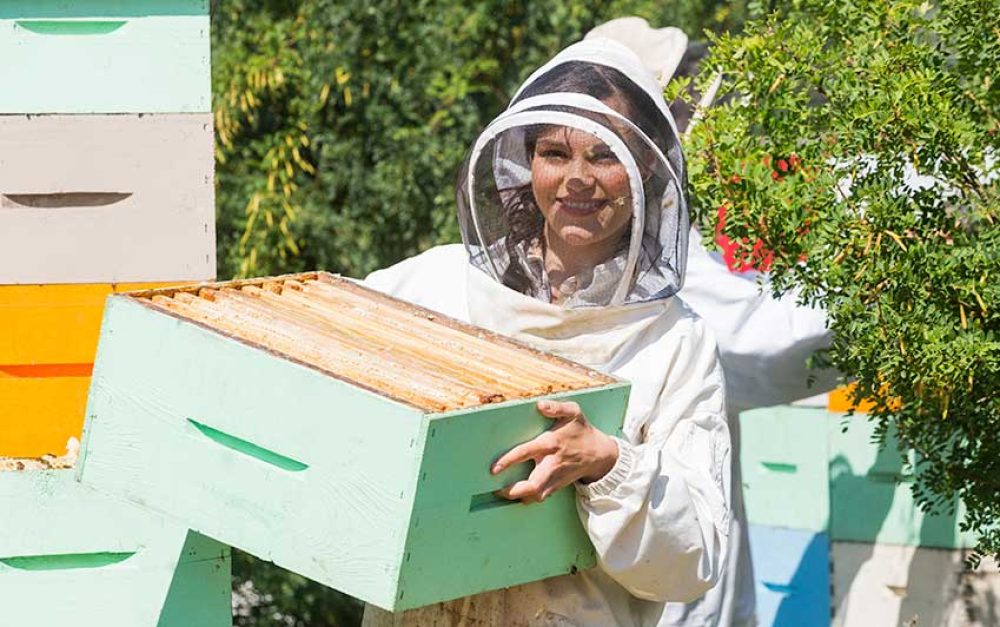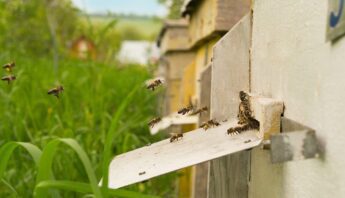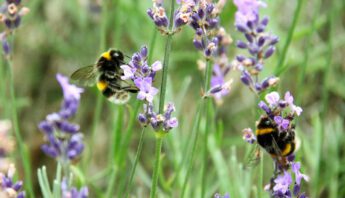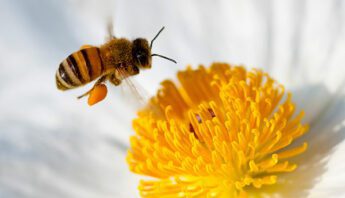Maybe it’s time for a beekeeper for president. They can manage complex hives, provide critical support for farms and ecosystems, and ensure we get to eat an amazing array of fruits, nuts and vegetables. And they are some of the first to recognize that bee declines are a symptom of larger problems in our broken agricultural system.
The fact is, it can seem like everyone is taking meaningful action to protect bees from pesticides besides our federal government. Officials in France, for example, recently announced that country is moving forward with not only banning bee-harming neonicotinoids, but also advancing a larger effort to protect biodiversity. Minnesota publicly acknowledged the threat of neonics last week, and is helping beekeepers collect damages for problems from the pesticide coatings that drift from corn fields at planting time. And, in Maryland, state legislation is moving towards the Governor’s desk that would restrict the sale of bee-harming neonics.
This adds up to exciting momentum for bees — with international governments, states and localities filling a stunning leadership vacuum in Washington, DC.
The White House Task Force’s much-anticipated “national strategy” to protect bees and pollinators set forth a goal of reducing honey bee colony losses to economically sustainable levels — yet there’s been little progress to that end. Last year, U.S. beekeepers lost over 40% of their honey bees, more than twice what is considered sustainable.
One neonic at a time? Bees can’t wait.
Even the Government Accountability Office noted in a recent report that federal agencies are failing to address and stem bee declines. According to their findings, USDA has no way to track native and wild bee health or efforts to protect these vital pollinators. And EPA has yet to address the chemical soup to which many bees are regularly exposed. Given the science showing potent effects of pesticides acting in tandem, it’s increasingly ridiculous to assess each neonic in isolation.
But that is exactly what U.S. agencies are doing. EPA released its first assessment of one neonicotinoid — imidacloprid — and it will likely be another few years before any action is taken. And then there are a handful of other neonics that have to be reviewed and acted upon. As we’ve seen time and time again, there’s no penalty for delaying action for years.
The fact is, USDA and EPA are ineffectual leaders, unable to provide the dramatic changes needed for bees and other pollinators.
Meanwhile, the White House is encouraging states to develop so-called pollinator protection plans. As I noted before, these could be powerful tools — but instead have been used to place the burden of action on beekeepers. The plans also ignore the long-term persistent threats of pesticides on plants and in the air, water and soil, and fail to provide meaningful changes to support habitat and pollination on farms and on public lands.
It’s more than a little frustrating that our national officials are ignoring the warning signs. Bees are truly “canaries” for a broken system of food and farming.
Standing up for bees
The good news is that some international governments are paying attention and shining a light on the problem. In addition to France’s announcement last week, the UN’s Intergovernmental Science-Policy Platform on Biodiversity and Ecosystem Services mega-report recently highlighted that two out of five species of invertebrate pollinators, such as bees and butterflies, are on a path towards extinction. With pollinators responsible for 5–8% of global agricultural production (somewhere between $235–$577 billion in annual output), this underscores the urgent need for policymakers to take action.
Increasingly, states and localities are the ones stepping up to meet this challenge in the U.S. In the Minnesota case, two beekeepers were compensated after the “toxic dust” of Bayer’s neonic clothianidin drifted onto an organic farm where two beekeepers keep their hives. Here’s Kristy Allen, one of the Minnesota beekeepers involved:
The fact that [Minnesota Department of Agriculture] is compensating me for something that is not illegal is crazy to me. It means something is broken.”
In Sacramento, my city council — led by a beekeeper councilmember — recently passed a policy changing their contracts to ensure that no plants purchased or planted on city property could be pre-coated or pre-treated with neonicotinoids.
Perhaps a beekeeper for president isn’t such a good idea after all. We need as many of them as possible tending to the bees, trying to keep pollinators alive while we press for more meaningful and swift action from federal policymakers. But Allen is right…the food and farming system is indeed broken.








